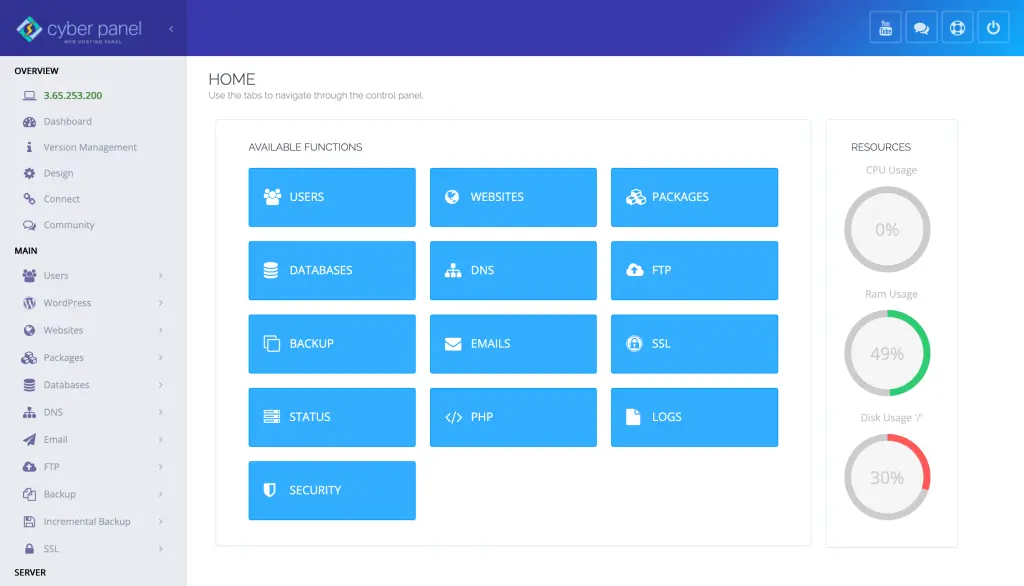Ansible is one of the most robust automation tools, but conditional task execution is significant for effective automation. When the condition in Ansible makes only certain conditions are met, making playbooks more dynamic and adaptable.
For example, you may want to:
Trigger a service restart only on config file change
Run task only on specific hosts by type or version.
Only install packages that have not already been installed.
Ansible will also evaluate the when condition on each task so you can ensure that if some conditions are not met then that part of the code won’t be executed, and this saves a lot of time and the process would be way more optimized.
Get exclusive access to all things tech-savvy, and be the first to receive
the latest updates directly in your inbox.
Let’s learn together!
Understanding When Condition in Ansible
The when condition is a powerful built-in Ansible feature that allows tasks to conditionally execute only if the when statement evaluates to true.
- name: Print a message if the OS is Ubuntu debug: msg: "This is an Ubuntu system" when: ansible_facts['os_family'] == "Debian"ansible_facts[‘os_family’] finds system information.
The task then runs if the OS is Debian-based (e.g., Ubuntu).
Using Variables in When Condition
Ansible uses variables in when conditions to make tasks dynamic.
Let us try an example in the next section: Conditional Package Installation
- name: Install Apache if not installed yum: name: httpd state: present when: package_status.stdout.find("httpd") == -1This task only runs if Apache is not installed.
package_status. stdout. find(“httpd”) == -1 if “httpd” also does not exist in the package list
How to Handle Multiple When Conditions in Ansible
AND (and) and OR (or) operators can combine multiple conditions.
Example 1: Using AND Operator
- name: Restart service if configuration changed and OS is Ubuntu service: name: apache2 state: restarted when: - ansible_facts['os_family'] == "Debian" - config_changed is defined and config_changedThe service restarts only if:

The OS is Ubuntu.
config_changed is true.
Example 2: Using OR Operator
- name: Install Nginx on Debian or Ubuntu apt: name: nginx state: present when: ansible_facts['distribution'] == "Ubuntu" or ansible_facts['distribution'] == "Debian"If the OS is Ubuntu or Debian, the task is run.
Using When Condition in Ansible Playbook
So, when conditions can be evaluated at task scope in a playbook of ansible.
Example Playbook: Install And Start Apache On CentOS Only
- name: Install and Start Apache on CentOS hosts: all tasks: - name: Install Apache yum: name: httpd state: present when: ansible_facts['distribution'] == "CentOS" - name: Start Apache Service service: name: httpd state: started when: ansible_facts['distribution'] == "CentOS"An interesting fact about this playbook is that it will only install and start Apache if the OS is CentOS.
Advanced Logic: Ansible OR in When Condition
Example: Run if a file exists or the system is Debian
- name: Run a task if file exists or OS is Debian command: echo "File exists or OS is Debian" when: (ansible_facts['distribution'] == "Debian") or (ansible_facts['distribution_file_variety'] is defined)When the OS is Debian, or, a certain file exists, this task runs.
Conditional Automation and the Role of CyberPanel

CyberPanel as a web hosting control panel makes server management easier as well as can fit with Ansible automation.
How CyberPanel Benefits from Ansible When Condition
Fast Server Provisioning – OS type and version-based software installation
It allows you to perform updates only if they are necessary.
Service Monitoring – Only restart services if it is needed.
User Management — Create or delete users conditionally.
Security Hardening — Patch only vulnerable servers
Integrating CyberPanel with Ansible does your automation job as a server administrator simply and efficiently.
FAQs About When Condition in Ansible
1. What is the purpose of when the condition in Ansible?
The when condition in Ansible is a powerful feature that allows you to run tasks only when certain conditions are met. The execution ensures that a task only runs when certain preconditions are met so playbooks can be much more efficient and adaptable.
2. How and when can conditions be used in facts and variables in Ansible?
When conditions can be applied using Ansible facts (e.g., details about systems) plus variables to apply conditions, this facilitates the execution of tasks dynamically based on the current state of the system—say OS type, memory, or installed software.
3. How do logical operators ‘AND’ and ‘OR’ behave in when conditions?
AND and OR can be used with when conditions when evaluating multiple conditions. AND checks if all conditions are satisfied, while OR runs if any one of the conditions is satisfied.
Final Thoughts!
The when condition in Ansible optimizes tasks, ensuring that playbooks run only when necessary. When makes for more intelligent automation, regardless of how simple or complex your variables, conditions, and logical expressions are.
Define when conditions and use them to automate well, which will save you time in execution and also provide better resource management.



